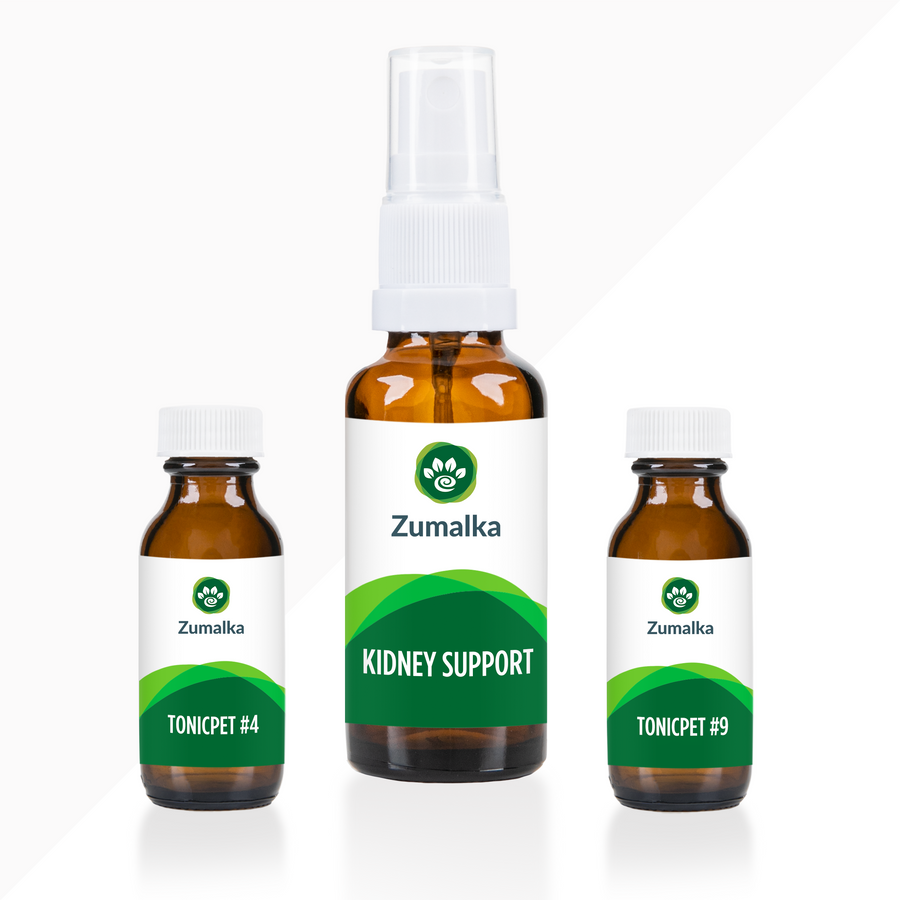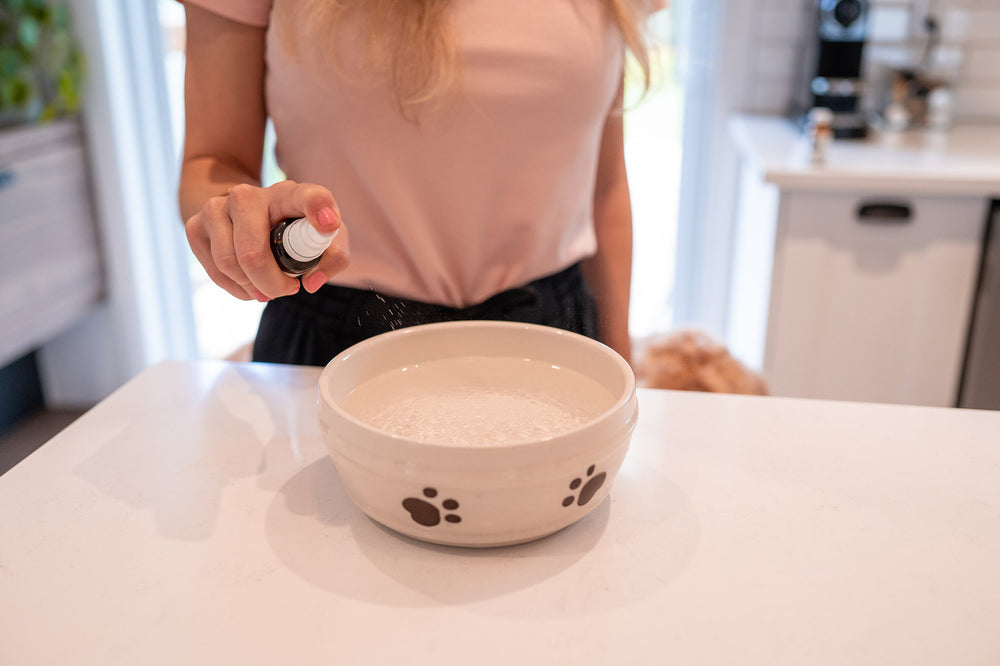Vet-Verified: Breathe Easy – A Surprising BOAS Fix for Aging Bulldogs
List of Contents
- BOAS in Senior Bulldogs: What It Is and Why It’s Important
- An Effective Yet Overlooked Way to Manage BOAS in Senior Bulldogs
- Is Your Senior Bulldog Showing Signs of BOAS? Here’s What to Know
- Why BOAS Gets Worse as Bulldogs Age
- BOAS in Senior Bulldogs: Management Strategies for Better Breathing and Comfort
- Collaborating with Veterinary and Pet Holistic Experts for Senior Bulldog Care
- FAQs
- Conclusion: Making Their Senior Years as Comfortable as Possible
There’s something incredibly special about the calm, loyal presence of a senior bulldog. Their gentle companionship makes their golden years truly heartwarming—yet aging brings challenges that caring pet owners must navigate with care.
One common issue in aging bulldogs is Brachycephalic Obstructive Airway Syndrome (BOAS), a condition that can seriously affect their breathing and comfort. Understanding how BOAS impacts senior bulldogs is key to improving their quality of life and helping them breathe easier in their later years.
BOAS in Senior Bulldogs: What It Is and Why It’s Important

Brachycephalic Obstructive Airway Syndrome is a breathing disorder linked to the short-nosed, or brachycephalic, anatomy of breeds like bulldogs. This distinctive head shape often leads to persistent respiratory challenges that tend to worsen as bulldogs grow older.
Key anatomical issues in bulldogs with BOAS include narrowed nostrils (stenotic nares), an elongated soft palate, and, in some cases, a hypoplastic trachea or narrowed windpipe. These physical traits restrict airflow, making it harder for senior bulldogs to breathe comfortably during daily activities or in warmer weather.
BOAS is often a progressive condition, with symptoms that can intensify as bulldogs age and anatomical issues place increasing strain on their respiratory system. Without proper management, what begins as mild snoring or labored breathing can evolve into more serious complications in senior bulldogs.
Make sure you steer clear of this big misconception
A common misconception is that loud breathing or snorting is simply “normal” for bulldogs, but it can actually signal an underlying issue like BOAS. In aging bulldogs, these sounds may indicate worsening airway obstruction and should never be ignored.
An Effective Yet Overlooked Way to Manage BOAS in Senior Bulldogs
For senior bulldogs with BOAS, using a harness instead of a collar is a simple but effective way to protect their airway. Harnesses reduce pressure on the neck and trachea, helping to ease breathing and prevent unnecessary strain.
Research indicates that collars can restrict airflow by putting pressure on delicate neck structures, particularly in brachycephalic breeds like bulldogs. Switching to a properly fitted harness can help improve breathing and enhance overall comfort, especially in senior bulldogs.
Best natural products to support your senior bulldog with BOAS
Zumalka’s BRONCHIAL CLEAR is a natural homeopathic remedy designed to support your pet’s respiratory health and improve breathing capacity.
It can help maintain clear airways and ease occasional breathing discomfort by supporting the natural expulsion of mucus and soothing throat irritation. This makes it ideal for pets with chronic dry or wet coughs.
Whether your pet is coughing at night or during the day, BRONCHIAL CLEAR can be a helpful addition to your pet’s care routine, especially during times of respiratory sensitivity.
Additionally, IMMUNOPET from Zumalka is a natural immunostimulant formulated to support your pet’s immune system with a blend of powerful, broad-spectrum ingredients. Its blend of natural ingredients is traditionally used to help maintain healthy immune function, support normal blood health, and encourage a balanced response to environmental stressors.
IMMUNOPET can be used as part of a general wellness plan, particularly for pets needing added immune support.
Is Your Senior Bulldog Showing Signs of BOAS? Here’s What to Know

Watch for these signs that may indicate Brachycephalic Obstructive Airway Syndrome in your aging bulldog:
- Reduced exercise tolerance or reluctance to go for walks
- Gagging, coughing, or regurgitation, often linked to breathing and digestive strain
- Blue or purple gums or tongue (cyanosis), signaling oxygen deprivation in severe cases
- Excessive panting, even in cool environments or at rest
- Sleep disturbances or unusual sleeping positions to ease breathing
- Loud, labored breathing, such as snoring, snorting, or high-pitched stridor
- Frequent mouth breathing, especially during rest or mild activity
- Increased breathing difficulty, even without exertion
Monitoring changes in your senior bulldog’s breathing is essential—early detection of issues can lead to more effective treatment and a better quality of life.
Why BOAS Gets Worse as Bulldogs Age
As bulldogs age, several factors can contribute to the progression of Brachycephalic Obstructive Airway Syndrome:
- Weight gain: Reduced activity in senior dogs often leads to weight gain, which places additional pressure on the airways and worsens breathing difficulties.
- Anatomical progression: BOAS-related structural issues, such as narrowed airways and elongated soft palates, tend to worsen over time without intervention.
- Secondary conditions: Long-term respiratory effort can lead to complications like laryngeal or bronchial collapse, further limiting airflow.
- Decreased physical resilience: Aging bulldogs have less capacity to adapt to stress or recover from respiratory episodes.
- Age-related health issues: Conditions such as heart disease or arthritis may indirectly impact breathing by reducing mobility and overall vitality.
BOAS in Senior Bulldogs: Management Strategies for Better Breathing and Comfort
Support your aging bulldog's breathing and comfort with these evidence-based, easy-to-implement strategies:
- Elevated feeding: Raising your bulldog’s food and water bowls can ease swallowing and help reduce regurgitation episodes.
- Surgical consideration: While surgery may help younger dogs, anesthesia carries greater risks for seniors and should be carefully discussed with a veterinarian.
- Regular veterinary checkups and homeopathic support: Schedule routine visits with a veterinarian experienced in BOAS to track symptoms and explore treatment options; consulting a qualified pet homeopath may also offer additional, holistic support.
-
Stress reduction: Keep your dog’s environment calm and predictable, as stress and excitement can trigger or worsen breathing difficulties.
Environmental control: Avoid heat and humidity by ensuring access to cool, well-ventilated spaces to reduce the risk of overheating and respiratory distress. - Weight management: Help your senior bulldog breathe more easily by maintaining a healthy weight through proper diet and low-impact, consistent exercise.
Collaborating with Veterinary and Pet Holistic Experts for Senior Bulldog Care

Open communication with your veterinarian or pet homeopathy specialist is essential when managing BOAS in senior bulldogs. Reporting any changes in your dog’s breathing can lead to timely adjustments in care and prevent complications.
A veterinarian knowledgeable about BOAS can conduct a thorough assessment to gauge how advanced the condition is. This evaluation also helps identify or rule out other health problems that may be affecting your bulldog’s breathing.
A veterinarian experienced in BOAS can recommend a personalized management plan based on your senior bulldog’s unique health profile and symptom severity. This ensures that treatment strategies—medical, surgical, or supportive—are safe and effective for their age and condition.
Moreover, a qualified pet homeopathy expert can offer customized natural support to complement veterinary care and enhance your dog’s overall well-being.
FAQs
What is the best age for BOAS surgery?
BOAS surgery is most effective when performed early, ideally around 6 to 12 months of age. Early treatment helps reduce airway obstruction, prevent symptom progression, and improve long-term quality of life in bulldogs.
Can older dogs have BOAS surgery?
Older dogs can undergo BOAS surgery, but age-related risks must be carefully considered. A veterinarian will evaluate overall health to determine if surgery is a safe and beneficial option.
What is the life expectancy of a dog with BOAS?
The life expectancy of a dog with BOAS can vary, but with early diagnosis and proper management, many live normal lifespans. Untreated, severe cases may shorten lifespan due to chronic respiratory stress and complications.
How do I know if my Bulldog has BOAS?
Common signs your bulldog may have BOAS include loud breathing, snorting, exercise intolerance, and frequent panting. A veterinary exam is essential to confirm the diagnosis and assess the severity. Consulting a pet homeopathy expert is also beneficial.
Does BOAS get worse with age?
Yes, BOAS often worsens with age as anatomical issues progress and a dog’s physical resilience declines. Early management is key to reducing symptoms and maintaining a better quality of life in senior bulldogs.
What is the most common cause of death in English bulldogs?
The most common cause of death in English Bulldogs is cardiac and respiratory disease, often linked to their brachycephalic anatomy. Early health monitoring and proactive care can help extend their lifespan and comfort.
When should I be worried about my bulldog’s breathing?
You should be concerned if your bulldog shows signs like labored breathing, excessive panting, blue gums, or snoring at rest. These may indicate BOAS or another serious respiratory issue requiring veterinary attention.
How to tell if a dog is nearing the end of life?
Signs a dog may be nearing the end of life include severe fatigue, labored breathing, loss of appetite, incontinence, and withdrawal. Consulting your veterinarian or pet homeopath can help ensure comfort and compassionate end-of-life care.
How to calm a Bulldog’s breathing?
To calm a bulldog's breathing, keep them cool, reduce stress, and use a harness instead of a collar. If labored breathing persists, consult a veterinarian to rule out or manage BOAS.
How to help a dog with BOAS?
To help a dog with BOAS, maintain a healthy weight, avoid heat and stress, use a harness, and consult your veterinarian or pet homeopathy specialist for personalized care. Early management significantly improves comfort and long-term quality of life.
Is there a cure for BOAS?
While BOAS has no definitive cure, its symptoms can be successfully managed through lifestyle adjustments, veterinary treatment, homeopathic support, and, when appropriate, surgery, significantly improving your dog’s breathing and overall well-being.
Is BOAS surgery worth it?
BOAS surgery can be worth it for dogs with moderate to severe symptoms, as it often improves breathing, comfort, and activity levels. A veterinary evaluation helps determine if surgery is the best option.
Can a dog live with BOAS?
Yes, many dogs can live with BOAS, especially when symptoms are identified early and managed properly. With veterinary care, pet homeopathy support, lifestyle adjustments, and possible surgical intervention, dogs with BOAS can enjoy a comfortable, active life.
Conclusion: Making Their Senior Years as Comfortable as Possible
While BOAS is a serious condition, understanding the signs and taking proactive steps can greatly improve your senior bulldog’s comfort and quality of life. With the right care, many aging bulldogs continue to enjoy their golden years with ease.
Your care, commitment, and attentiveness play a vital role in helping your senior bulldog thrive. By staying informed and partnering with trusted veterinary and pet homeopathy experts, you're ensuring a healthier, more comfortable life for your beloved companion.









Leave a comment